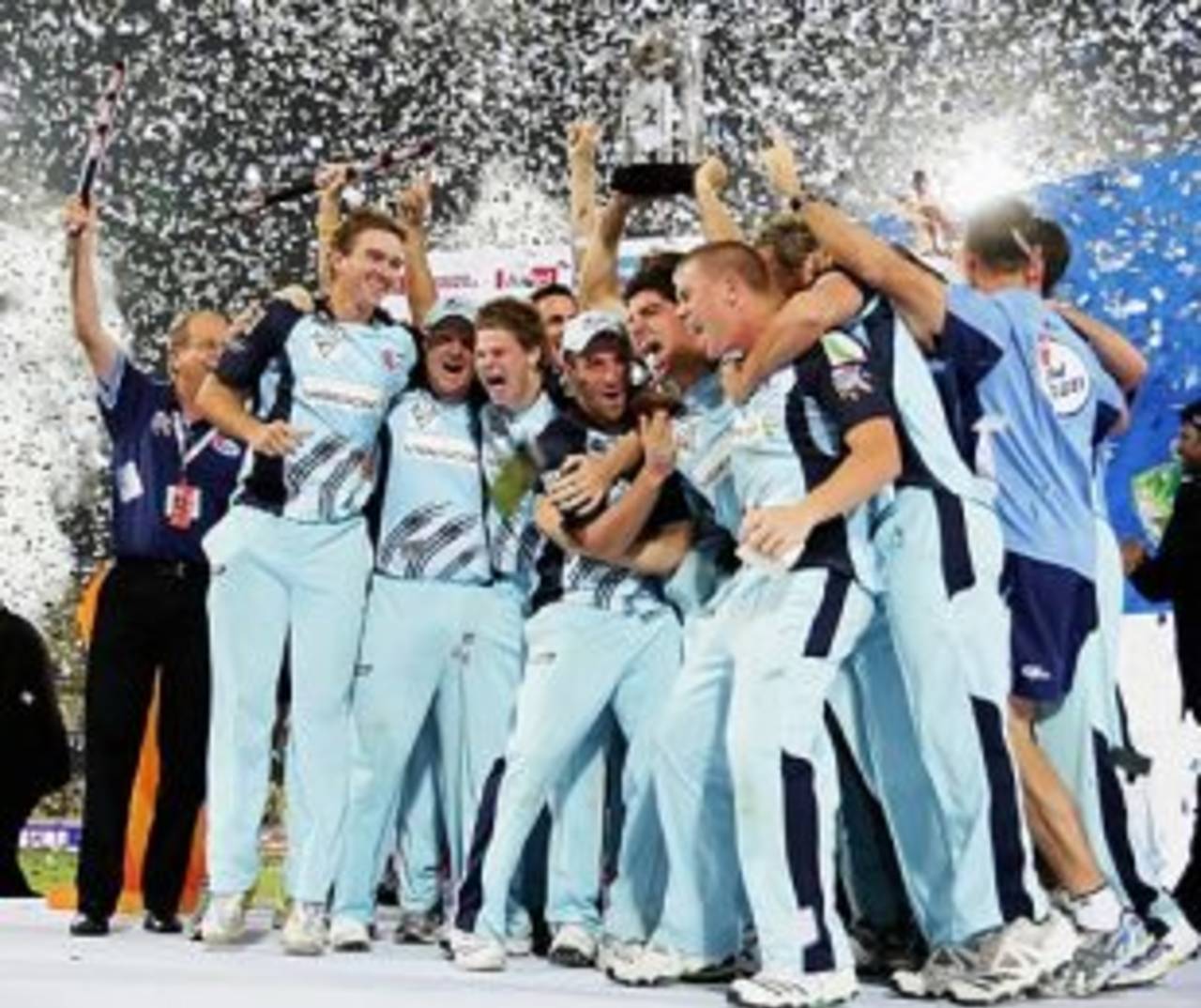Cricket's most lucrative club competition, the $6.5m Champions League Twenty20, begins in less than ten days with organisers assuring "robust" anti-corruption and security measures. It will be the first multi-nation tournament to be held following the News of the World sting operation that led to the ICC's first-ever use of its provisional suspension clause to suspend the three Pakistan cricketers suspected of spot-fixing.
In the aftermath of the sting, seven international cricketers have so far come out and said they had been contacted by illegal bookies, the latest being the Australian David Warner, who said a group of men he found suspicious had approached him in New Delhi last year during the first edition of the CLT20.
This year the tournament is being held in South Africa from September 10 to 26, and Gerald Majola, the chief executive of Cricket South Africa and a CLT20 governing council member, said that the organisers would be working with the ICC's Anti-Corruption and Securities Unit, "as we would for any major event like a World Cup. The governing council and ICC have put the same plans in place as they would for any event".
Dean Kino, another member of the CLT20 governing council, told ESPNcricinfo that a full allotment of the ICC's Anti-Corruption officers would be present during the tournament, which is not an ICC event. In addition to the ACSU and regular ground security, the South African firm Nicholls, Steyn & Associates will be on duty at the event dealing with security and anti-corruption issues. Four security agents will be present at every game, between three and four security officers will be attached to every team, and there will be a similar number at every hotel.
Kino said the spot-fixing controversy had not caused fresh concerns for the Champions League. "In case of players breaking the code, the same strictures would apply as they do in the ICC's anti-corruption code". The CLT20's code of conduct opens with a 14-point list of offences related to betting, gambling and speculation, bringing the game into disrepute, contriving a result or occurrence of a "cricket event" and "not performing on merits".
"No single player who takes the field in our tournament will not have been educated about corruption and the code of behaviour," Kino said.
In July, Sir Paul Condon, the outgoing head of the ACSU,
told Cricinfo in an interview that Twenty20 cricket represented "the biggest challenge to the integrity of cricket for probably 10 years".
According to Condon, the Twenty20 format's "familiarly heady cocktail of party atmosphere, entertainment, cricket and celebrity" caused some of the "bad old faces who were involved in match-fixing a decade ago to reappear at grounds and hotels to try and get involved again".
Condon brought the security issues around Twenty20 cricket to light when he made a verbal presentation to the ICC executive board last year about IPL 2009 in South Africa. The event had been held without the involvement of the ACSU but the ICC's security men picked up information about the event from their South African contacts.
A senior ICC official who attended the Condon presentation told ESPNcricinfo that the security chief said IPL 2009 had "all kinds of people entering dressing rooms and the use of mobiles and laptops in there, which normally should be forbidden". The BCCI had asked the ICC for "proof" after which a formal document was sent from the ICC to the Indian board. The ACSU was then included in the conduct of IPL 2010, which was given a clean chit by Condon's men. There were still security loopholes, however, due to the IPL's big ticket after-parties where, according to an ICC official, "anyone who could buy tickets, even if they cost $1000, could walk in. The protective environment was just not there."
The IPL after-parties may be banned next year but former India Test cricketer Atul Wassan said several IPL cricketers had told him that they had been approached by strangers trying to befriend them by talking about "making good money".
Wassan refused to name the cricketers making this statement but told ESPNcricinfo, "these are guys who know me well, youngsters in the IPL, assured of a spot on their teams... the people who came up to them were trying to build relationships that they could milk when the player became a star".
Wassan agreed with the claim that Twenty20 cricket attracted illegal betting syndicates looking to make use of the rapid pace and frequent fluctuations in every match. "Never mind only the IPL, any pronto cricket or club cricket is a sitting duck for the illegal betting business."
Sharda Ugra is senior editor at Cricinfo
